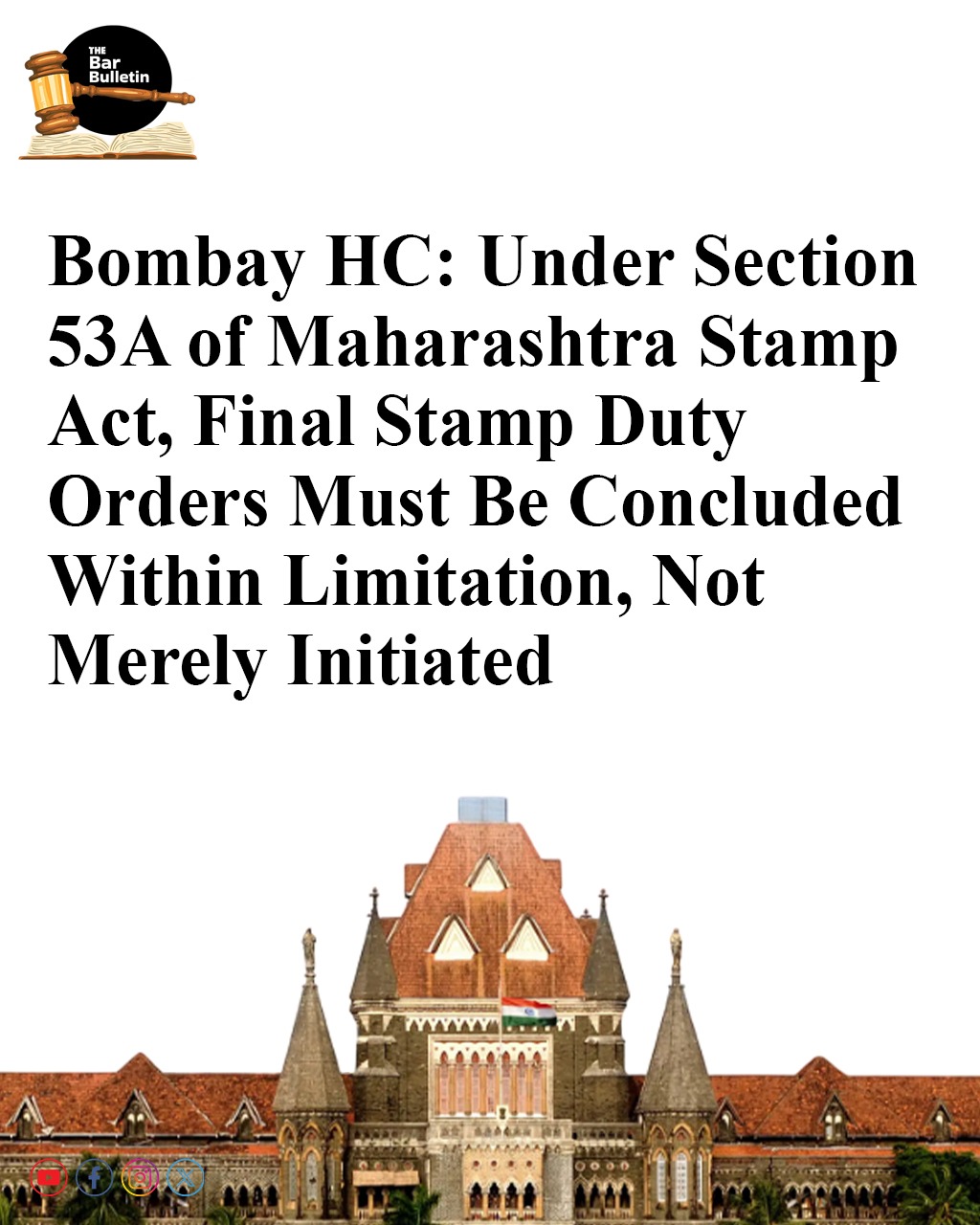The Bombay High Court allowed a writ petition filed by Sony Mony Electronics Limited and set aside two orders of the Chief Controlling Revenue Authority that had demanded ₹8,21,000 as deficit stamp duty on an agreement for sale executed on 12 December 2003. The Court held that the demand, purportedly made under Section 53A of the Maharashtra Stamp Act, 1958, was barred by limitation because the final order was passed long after the expiry of the statutory six-year period from the date of adjudication.
The petitioner company had, in December 2003, lodged the agreement for sale with the stamp authorities and paid ₹16,59,950 as duty, based on a certificate issued under Section 32(1)(b) of the Act. In 2007, 2008, and in November 2011, the revenue authorities issued show-cause notices alleging undervaluation and relying on a subsequent valuation report that appraised the property as “shop premises” rather than “commercial property,” with a much higher market value. On 14 August 2012, the Chief Controlling Revenue Authority concluded that there was a deficit and ordered payment of ₹8,21,000. That order was reaffirmed on 21 August 2015 after earlier High Court directions to rehear the matter.
Before the High Court, the petitioner argued that Section 53A requires not only that the proceedings be initiated but also concluded within six years from the date of the Collector’s certificate (here, 2 December 2003). On this reading, the six-year period expired on 2 December 2009, well before the impugned order. The State contended that only commencement within six years was required, and that the final order could follow later.
The Bench comprising Justice Jitendra Jain, after analysing the language and structure of Section 53A(1), held that the legislature’s use of the conjunctive “and” links the power to initiate proceedings with the passing of the recovery order, meaning both must occur within the prescribed six-year limit. The Court drew support from the scheme of the Stamp Act, the proviso to Section 32C, and Supreme Court precedents such as Hariom Agrawal vs Prakash Chand Malviya [1], which emphasised completion within the outer limit specified.
The Court observed that even if the State’s interpretation were accepted, the delay of nearly two years and eight months after expiry of the six-year period was beyond any “reasonable time” standard recognised by revenue jurisprudence, citing State of Gujarat vs Patil Raghav Natha [2], State of Punjab vs Bhatinda District Co-op. Milk Producers’ Union Ltd.[3], and Santoshkumar Shivgonda Patil vs Balasaheb Tukaram Shevale [4].
Accordingly, the Court held that, viewed from the perspective of either party, the demand orders were beyond limitation. Both the 14 August 2012 and 21 August 2015 orders were quashed on this ground, without entering into the merits of the valuation. The Court also directed refund of 50% of the demand amount that had been deposited pursuant to the interim orders, along with accrued interest after four weeks.
Finally, noting that the petitioner had failed to annex earlier Section 53A notices despite raising limitation grounds, the Court found no intentional suppression but ordered the petitioner to donate ₹50,000 to Tata Memorial Hospital within two weeks.
[1] (2007) 8 SCC 514
[2] AIR 1969 SC 1297
[3] (2007) 11 SCC 363
[4] (2009) 9 SCC 352
Appearances:
For the Petitioner: Mr. M. M. Vashi, Senior Advocate a/w. Ms. Panthi Desai and Ms. Manisha Desai i/b M/s. M. P. Vashi & Associates
For Respondent Nos.1 & 2: Mr. Himanshu Takke, AGP
![]()



